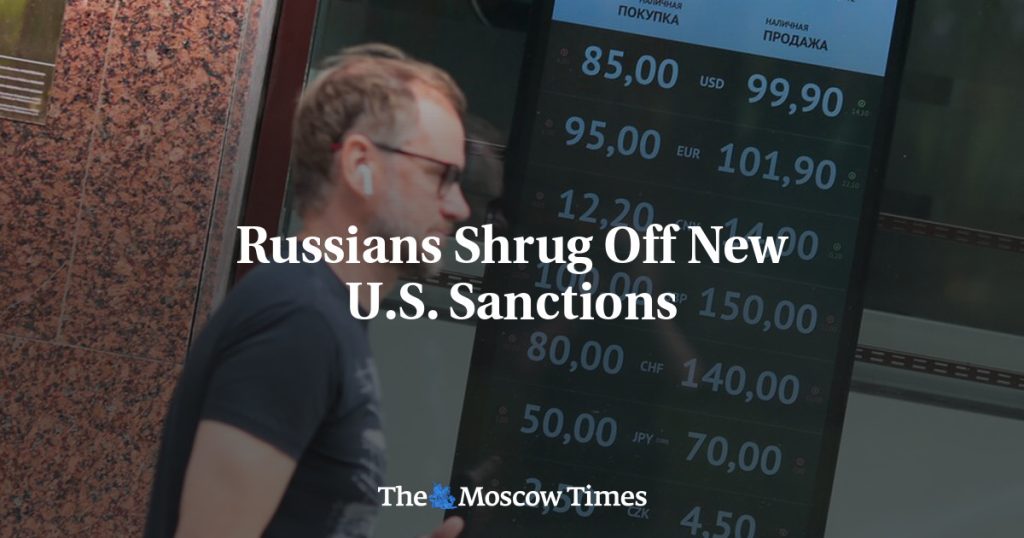Russians in Moscow are showing little concern about the recent U.S. sanctions that resulted in the halting of dollar and euro trade on the largest exchange in the country. Many believe they have no need for Western currencies due to existing sanctions and limited travel opportunities abroad. While the exchange has suspended dollar and euro trade, individuals and companies in Russia can still conduct transactions through lenders, with the Central Bank ensuring the safety of all deposits in dollars and euros. However, this shift may lead to increased volatility, commissions, and margins in the currency market.
Historically, restrictions on Russians’ ability to buy and trade foreign currencies have sparked strong reactions, as seen during the initial phases of the conflict with Ukraine. Despite facing over two years of war and sanctions, Russia’s economy has proven to be more resilient than expected, with the Chinese yuan dominating a majority of foreign exchange transactions on the Moscow Exchange. President Putin has emphasized Russia’s strength and economic resilience in the face of Western pressure, a sentiment echoed by some in Moscow who believe Russia should aim to become even stronger to overcome sanctions.
After the latest sanctions were announced, some banks briefly raised their exchange rates dramatically, causing concerns of a currency crisis. However, rates soon stabilized, with most banks offering typical spreads between buying and selling prices. While the immediate effects of the sanctions were moderate, the overall impact could lead to slower, more expensive, and complicated currency operations in the economy. These additional costs could eventually be passed on to consumers through price rises, contributing to already high inflation.
The Russian Central Bank and the Kremlin have sought to reassure the public, stating that individuals and companies can continue to buy and sell U.S. dollars and euros through Russian banks, with funds held in foreign currency accounts remaining secure. Putin’s spokesperson mentioned that stability in all markets was being maintained and hinted at possible retaliatory measures against the United States. Some Russians saw the volatile situation as an opportunity for profit, with students engaging in currency trading to capitalize on fluctuations. However, for others like 18-year-old Yaroslav, the current situation did not have a significant impact, as he supported Moscow’s efforts to reduce reliance on foreign goods and chose not to invest in foreign currencies due to uncertainties.
Despite the challenges posed by sanctions and the impact on the currency market, many Russians in Moscow remain unfazed and are adapting to the changing economic landscape. While the suspension of dollar and euro trade on the Moscow Exchange may result in adjustments to trading practices and increased costs in the economy, the overall sentiment among some individuals is to focus on strengthening Russia’s resilience in the face of external pressures. As the country navigates through the economic implications of the sanctions, individuals and businesses are finding ways to mitigate risks and explore opportunities in the evolving financial environment.


